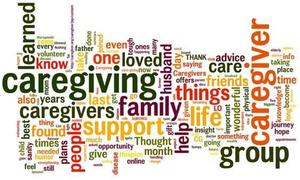Nuance Audio is a new option for people who resist traditional aids, from the company that makes Ray-Bans and operates LensCrafters.
Seekers of Meaning Podcast Posted Online March 7, 2025
What's Next Longevity Deal Talk Episode 32, January, 2025
Presentation: What's Next Longevity Venture Summit, June, 2025

 Boomers and technology – it’s a given. Yesterday yet another baby boomer reporter asserted what is believed by many to be the obvious. Baby boomers will not be tech-phobic (presumably like their parents) – but will be willing and able to use the newest technology in their later years. What’s the proof? They use it now – for example,
Boomers and technology – it’s a given. Yesterday yet another baby boomer reporter asserted what is believed by many to be the obvious. Baby boomers will not be tech-phobic (presumably like their parents) – but will be willing and able to use the newest technology in their later years. What’s the proof? They use it now – for example,  Imagine all the non-digital photos and memorabilia. Forget Airbnb and driving for Uber. Boomers with creativity, organizational skill and some technology can follow multiple small business paths that have large emotional implications for the customer. Consider the large and small albums of photos, cassette tapes, home movies – not just from the boomers aged 51-71, but from their parents, and even some from their parents’ parents. Will anyone want it? Cynics contend that not only will the old content be lost due to disinterest, but that current content (selfies, group photos, Facebook and Instagram shots of that great dinner) will also be
Imagine all the non-digital photos and memorabilia. Forget Airbnb and driving for Uber. Boomers with creativity, organizational skill and some technology can follow multiple small business paths that have large emotional implications for the customer. Consider the large and small albums of photos, cassette tapes, home movies – not just from the boomers aged 51-71, but from their parents, and even some from their parents’ parents. Will anyone want it? Cynics contend that not only will the old content be lost due to disinterest, but that current content (selfies, group photos, Facebook and Instagram shots of that great dinner) will also be  So many head-spinning numbers to describe the 50+ Consumer. In making the case for the 'Fintech' innovation market opportunity, AARP’s new
So many head-spinning numbers to describe the 50+ Consumer. In making the case for the 'Fintech' innovation market opportunity, AARP’s new  Pundits perpetuate the myth of non-use of so-called caregiver technology. [Rant on.] According to AARP, 40 million caregivers are taking care of an older, sicker person -- so says an oft-quoted
Pundits perpetuate the myth of non-use of so-called caregiver technology. [Rant on.] According to AARP, 40 million caregivers are taking care of an older, sicker person -- so says an oft-quoted  March madness – a plethora of posts – a newsletter recapping them. So many topics mandated a discussion, some analysis or insight. So the unusually long month of March meant an unusually long list of seven blog posts, including several involving examinations of data and new terminology (the paid Caregiver Support Ratio (pCSR), for example) that invite scrutiny and can be very useful for companies in the age-related market segments. As March winds to a close, here are the month’s posts, of particular use to those who didn’t see them at the time of posting – each of these is summarized with the full link in the heading.
March madness – a plethora of posts – a newsletter recapping them. So many topics mandated a discussion, some analysis or insight. So the unusually long month of March meant an unusually long list of seven blog posts, including several involving examinations of data and new terminology (the paid Caregiver Support Ratio (pCSR), for example) that invite scrutiny and can be very useful for companies in the age-related market segments. As March winds to a close, here are the month’s posts, of particular use to those who didn’t see them at the time of posting – each of these is summarized with the full link in the heading.